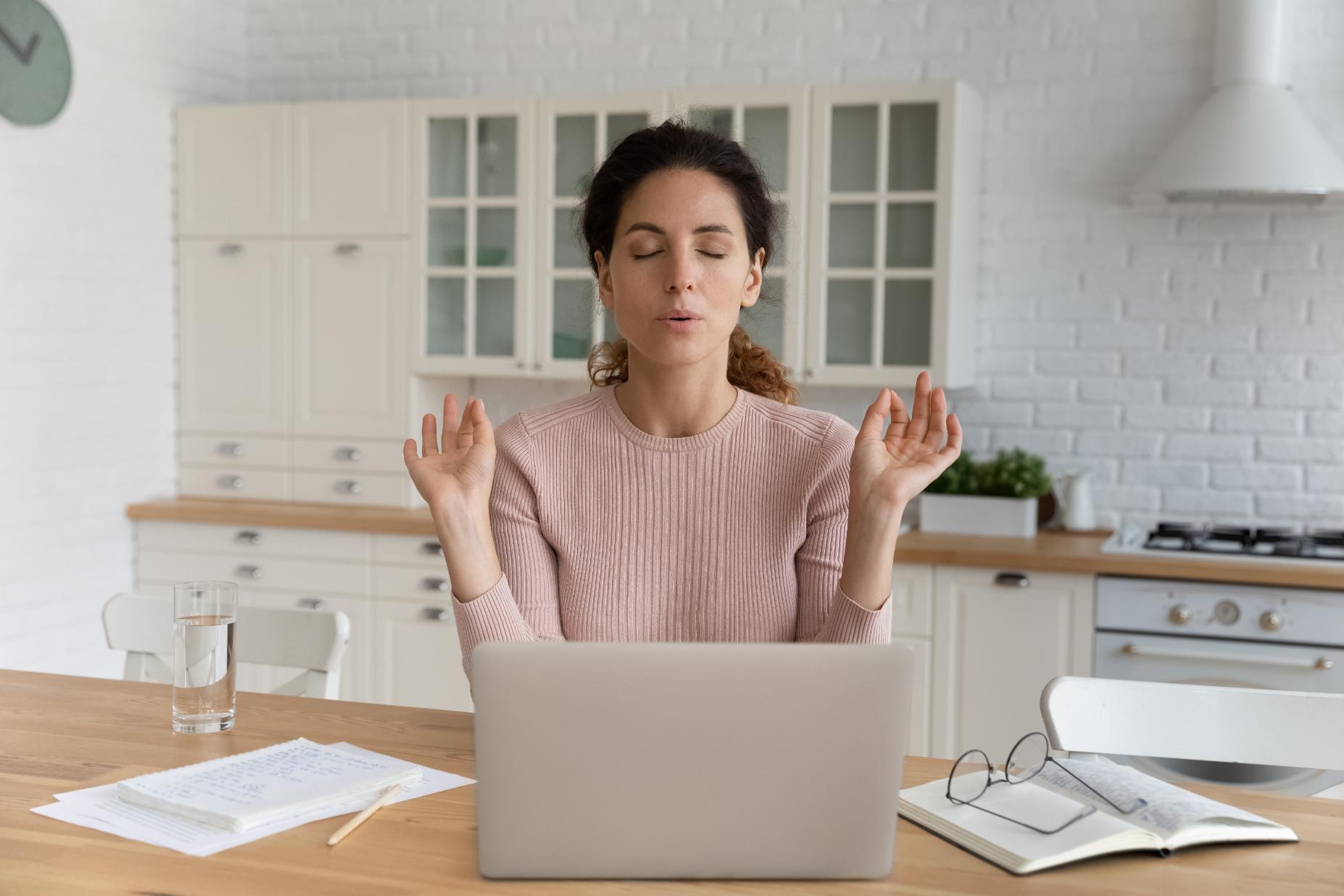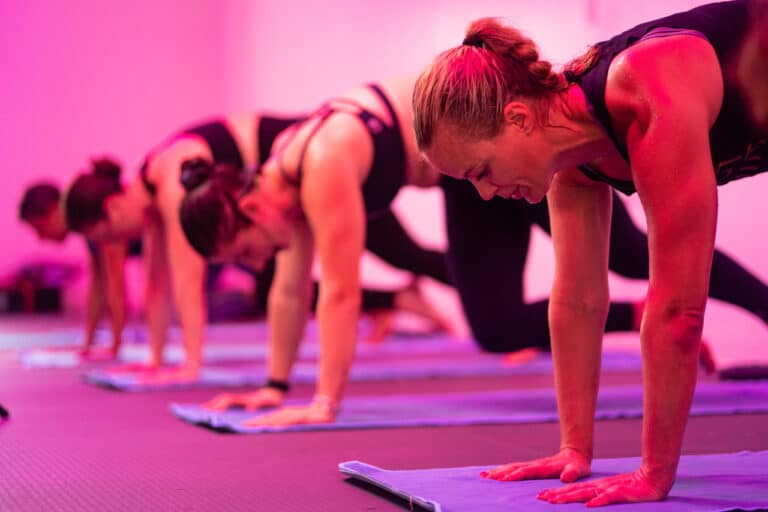We all have stressful moments from time to time but if your family is having more stressful days than not, it’s time to kickstart a new routine this year. With busy schedules and multiple personalities coming into play, families can have multiple layers of stress they must handle all at once. So, how do you make little changes to your daily routine to help you and your loved ones keep from burning out before 2025? We called on three professional wellness coaches to find out their best advice to keep cool this year.
Take Care of Your Body
This seems like a no brainer but for wellness coaches throughout our area, it’s clear making sure we are meeting basic bodily needs like a sufficient amount of sleep, hydration, a balanced diet and daily movement is something many of us struggle to prioritize. “It’s so important to start from that place of self-care,” says Marianna Cuomo Maier, board-certified health and wellness coach and founder of Manhattan-based Grata Wellness. “First of all, recognizing it’s not frivolous, and then dedicating time to activities that support your mind and body is essential for our health.” Modeling those behaviors will in turn create good habits in our children to practice self-care, too. “I feel like we have these long to-do lists so by recognizing that and leaning on those things so they become non-negotiable habits or routines, our days are already off to a better start,” she adds.
Create Structure
As human beings, we thrive on routines. As a national board-certified health and wellness coach based in Fairfield, CT, Andrea Cohen, NBC-HWC, helps her clients set goals and create routines that help achieve those goals. “As we work together, we really start to see that the time management piece is why many of my clients aren’t able to meet their goals,” says Cohen. “By prioritizing structure and routine, they create detailed schedules and block time in their calendars so they can meet those goals.” Setting attainable goals and achieving them is a big stress reducer, says Cohen, for parents and for children. “Kids are very attuned to their parents and they can notice when something’s off, even if we think we are masking it,” says Cohen. “They’re going to internalize our stress and it might, in turn, cause stress for them. We can stop the spread by reducing our own stress first.”
Fill Your Toolbox
Even when healthy routines are established, when we’re in times of transition or something extra comes along to add to our stress, it’s important to have a few mindfulness tools on hand to give us that extra boost. “Let’s check in,” says Cuomo Maier. “As yourself, ‘How am I feeling? What is different? What’s going on? What are the little things I can do today to help me feel good? How can we adapt the routine to integrate those things?” For example, deep breathing or meditation, even for a few minutes of the day, can help us and our children connect to our emotions. Journaling or speaking to a trusted friend are other ways she recommends practicing mindfulness. “Breathing techniques are a wonderful way, especially when one is feeling that stressful panicky sort of a feeling,” adds Cuomo Maier.
Be Proactive
As we navigate school and work each calendar year, many of us, if we look closely, see patterns in when stress tends to rear its ugly head. Be proactive, advises Michele Veglia, certified holistic coach and business operations manager for Peaceful Living Mental Health Counseling in Scarsdale, NY. As part of a team of mental health and wellness professionals, she works with clients who have recently undergone therapy for anxiety, depression and PTSD to create routines and prepare clients to move forward so the next time stress and anxiety escalates they are ready to face the challenge. “It’s getting to know how you and your children react to a transition or something that disrupts the routine and when there is a transition coming, it’s putting those things into play before it gets to be a challenge and a struggle,” says Veglia. Hydration, sleep, nutrition, getting outside and connecting to nature, movement, slowing down are all things you can become more mindful of especially when there is a bump in the road and life gets extra stressful. “I think it’s so important for someone to develop a kind of slow-down technique,” says Veglia. “Check in with your body and ask, what does my body need so that I can function optimally. I think that is really important as well.”
Communicate with Your Family
Once you’ve checked in with yourself or your children have checked in, it’s important to communicate how you react to stress, especially when you want to teach your children how to do the same. It’s OK, says Veglia to say to your kids, “Mom is a little stressed out right now and I need to do this to help calm down.” It’s important for children to know that stress and anxiety exist and are part of life for all of us and that it’s OK to take a few minutes to help yourself. “It’s showing them that there is a way to work through it,” she adds. When two people are parenting together, they may have different ways of coping with stress and that’s OK say experts. Communicate that each person is different and may handle stress differently. It’s good for children to see that there isn’t a right or wrong way. Most of all, listen to each other and respect each other’s feelings.
Know When to Seek More Help
What does your baseline of happiness look like? Cuomo Maier says it’s important to notice in ourselves and in our families any significant changes whether they be emotional, social or behavioral, that make us aware we might need to seek professional help. “You can think of it like with other health,” says Cuomo Maier. “We can wait until we get sick to see a doctor but having a proactive check-in can also be helpful to have supports in place before an issue arises.”
Is your stress or that of your children impacting daily function? Veglia says this is a good measure of when to seek a professional. A wellness coach can be a great way to get a good measure of whether you can benefit from some helpful tools and routines or if you need something more. “As a coach we’re focused on how to get our clients from point A to point B and if someone is really stuck and not moving forward because they have something from the past that they’re still trying to process that goes beyond the scope of the coaching relationship. At that point, I would recommend that client explore working with someone more specialized as an adjunct to our relationship,” says Cohen.
Take Small Steps
For those who might call on a wellness coach to help them get started on some new year’s resolutions, Cohen says, a coach can be a great tool to help you start small: “A lot of people go into the new year energized and with a long list of resolutions. However, without an actionable plan to meet those goals, resolutions will often fizzle out by April. You’re trying to create new habits or change existing habits. You need consistency and repetition, but you also need small steps. Whatever your goal is, try to take small steps that you can build upon as you move towards your greater goal. This helps to not only create new habit loops in our brain but it also helps us sustain those new habits.”




